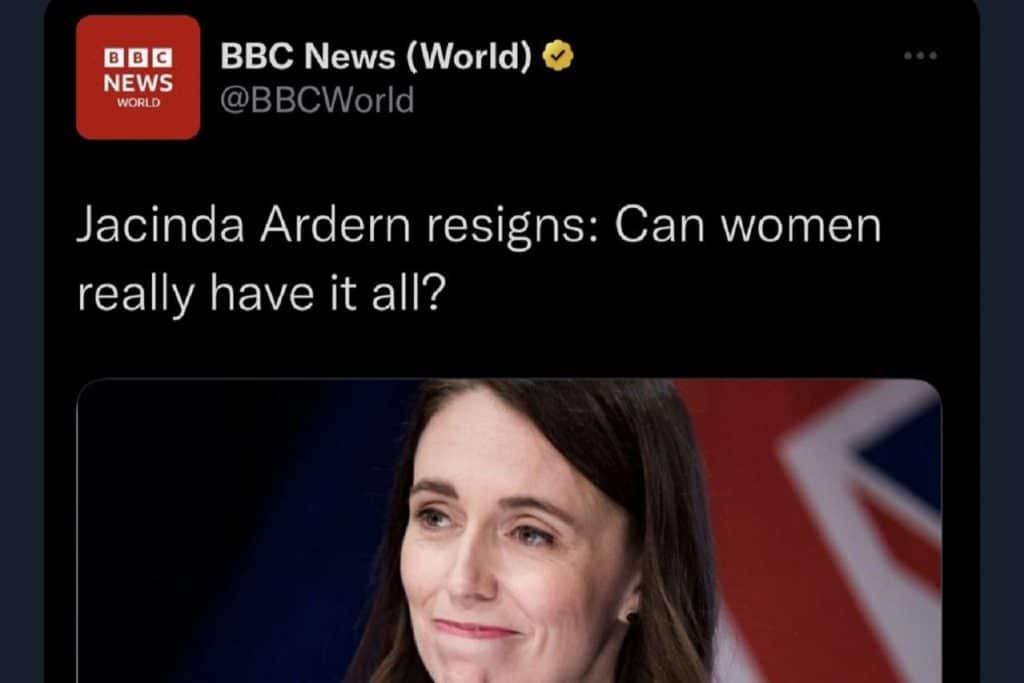The BBC headline was, in the end, only up for a short time, before the outcry rightfully demanded revision. ‘
Jacinda Ardern resigns: can women really have it all?’ it read, reducing a highly effective and much-beloved leader who steered her country through multiple national tragedies and a pandemic into a trope, a cliche, even a warning – the woman who tried to be bigger than she had any right to be.

I can’t count the number of times I have been warned not to try and have ‘it all’, and I suspect many women have this experience, regardless of their socioeconomic status or social class, education, race, or even aspiration. Despite the years and the variety of people who have said this to me, I am still trying to work out what ‘it all’ even is.
As far as I can tell, it generally seems to reflect the clash between a woman’s societally constructed obligation to have children and primarily identify as a mother, and her seeking an identity – any identity- apart from that.
The ideology is easy to enforce when a woman already has children – any hobby, interest or career aspiration necessarily takes time away from those children and limits participation, and so women can be warned that either or both of their family and other commitment will suffer.
Where women do not have children, the sorrowful observation that a barren uterus (and thus life) is the natural consequence of not prioritising procreation above all else becomes a strident warning when directed at older women beyond what the observer considers a fertile age – do not be like her, they say to others.
Never mind that Ardern navigated that tightrope of conflicting obligations in a way that should stand as inspiration to all leaders, regardless of their gender. Never mind that women, almost universally, invest so much to planning how to navigate balances between family and external life, and if they fail, it is often due to external factors rather than lack of attention or care. Never mind that Ardern is hardly the first politician to resign from an arduous public life, whether it be for family reasons or others. Never mind that a gracious resignation towards the peak of their tenure is an admirable and desirable trait in any leader.
All this said, I think it is important to acknowledge that the days have limited hours and it can be difficult for anyone to have and achieve everything they aspire to, especially at the same time.
But today, as always, my conversations about ‘having it all’ will not be with the younger women I mentor, but rather with men. Because I know that women, even those naively aspirational teenage women in my life, have considered the balances, the trade offs, the realities of what their lives might look like, regardless of whether those plans and aspirations involve child rearing or not. So it is to the men I say: how will you balance all your obligations? Oh, you’re rarely thought about this? Come, sit down, let’s talk about it.
I only wish the BBC would do the same.

